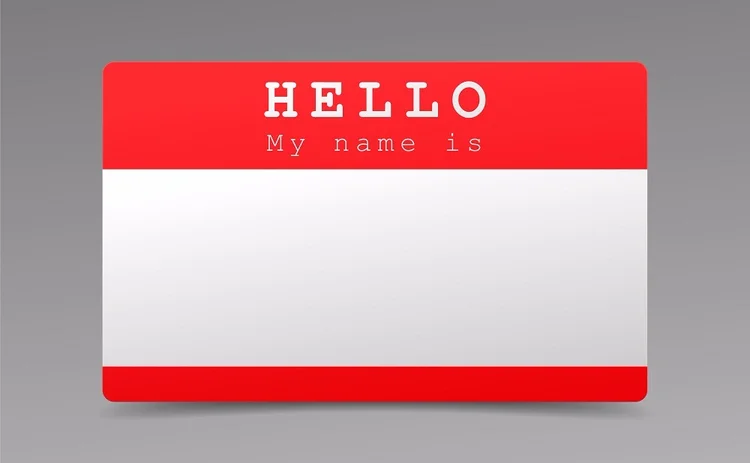Naming Rights: Grading Programming Language Names
What's in a name?

The first time I read Anthony Malakian's excellent feature on the Julia programming language, which you can find here, there was one question that was eating at me the entire time.
How did they come up with that name?
To be blunt, names in financial services usually suck. Sure, some vendors have good ones. But for the most part, it's usually some awful combination of words indicating the services they provide that was probably workshopped far too long at an overpaid marketing firm.
It's not just the tech companies that are bad. Don't get me started on hedge funds. Want to play a fun game? Search "____ Capital" on Google, and insert synonyms for "success," "strength" or "wealth" in the blank. If the results come back with a hedge fund, you have to drink. You should be dead from alcohol poisoning within five minutes.
That's why Julia stood out to me. The name was actually good. I'm a firm believer that naming non-human things human names is awesome. There is no way IBM's Watson would be as popular or as well-known if it was named SCV23.
For the record, somebody told the language's creators half-jokingly that they should name the language Julia. They liked the suggestion, and the name stuck. Unfortunately, there are plenty of other programming languages that didn't choose that path. Many took the easy way out, going with uncreative, boring names.
I, frankly, won't stand for it. And that's why I've decided to take these programming languages to task. I've picked some of the ones most commonly used in financial services and given them grades. Granted, it's not all bad, but there is certainly room for improvement.
Editor's Note: If you can't tell by now, these grades are tongue-in-cheek. Please don't email me with your staunch defenses of why these names are actually smart or intuitive.
C/C++
C, as the story goes, originally got its name because it was influenced by the B programming language. I understand the philosophy of naming it C, but that doesn't mean I like it. This just screams laziness. However, I will say this: I do give a bit of credit to C++ for going with the double +'s as opposed to simply a number (Yes, I'm looking at you, HTML5).
Grade: C--
R
Naming your programming language after a letter in the alphabet? Where have I seen this before? Folks, let's get a bit creative here. I know you're far more interested in putting your efforts into creating a revolutionary language that will be used for years to come. But how can you expect us to get excited about something that's just named after a letter in the alphabet?
Grade: D
HTML5
If you're going have your language be an acronym, at least have it spell out something cool or interesting. "HTML" is what happens when I try to text my girlfriend "Hey" after a night out. Simply tagging a number on at the end is the icing on this awful cake.
Grade: F
SQL
This is a perfect example of where HTML went wrong. SQL is also an acronym (Structured Query Language), but at least it looks like a word (sequel). I'll give credit here for the effort put forth, but we still have a long way to go.
Grade: B
Python
Finally, something I can get behind. Pythons are awesome. They are powerful, exotic creatures. What a great thing to name your language after! Clearly people agree, because there is also a programming language called Cobra. You know you're doing something right when people start copying you.
Grade: A
Java
This is the GOAT right here. Remember, Java made its first appearance in the mid-1990s. What was big back then? Internet cafes! Brilliant stuff right there. Throw in a cool-looking logo that incorporates the name and you've got yourself a real winner.
Grade: A+
Only users who have a paid subscription or are part of a corporate subscription are able to print or copy content.
To access these options, along with all other subscription benefits, please contact info@waterstechnology.com or view our subscription options here: https://subscriptions.waterstechnology.com/subscribe
You are currently unable to print this content. Please contact info@waterstechnology.com to find out more.
You are currently unable to copy this content. Please contact info@waterstechnology.com to find out more.
Copyright Infopro Digital Limited. All rights reserved.
As outlined in our terms and conditions, https://www.infopro-digital.com/terms-and-conditions/subscriptions/ (point 2.4), printing is limited to a single copy.
If you would like to purchase additional rights please email info@waterstechnology.com
Copyright Infopro Digital Limited. All rights reserved.
You may share this content using our article tools. As outlined in our terms and conditions, https://www.infopro-digital.com/terms-and-conditions/subscriptions/ (clause 2.4), an Authorised User may only make one copy of the materials for their own personal use. You must also comply with the restrictions in clause 2.5.
If you would like to purchase additional rights please email info@waterstechnology.com
More on Emerging Technologies
MarketAxess and DirectBooks partner, MSCI debuts AI connectors, and more
The Waters Cooler: Canton’s consortium advances cross-border collateral mobility, TRG Screen launches a market data ROI calculator, and Trading Technologies provides direct connectivity to India in this week’s news roundup.
24X files for exemption from SIP rule to take part in overnight trading
The exchange, which began operating in mid-October last year, plans to offer the overnight session in the second half of 2026.
HSBC gives 31,000 engineers an AI coding assistant
CEO Georges Elhedery said the bank is re-engineering its end-to-end processes and enhancing customer experiences with new AI tools.
Bloomberg Terminal’s agentic play shows rapid change in trading tech
Waters Wrap: The data giant’s conversational AI interface might seem novel, but others say having one is becoming a bare minimum in the world of trading technology.
AllianceBernstein enlists SimCorp, BMLL and Features Analytics team up, and more
The Waters Cooler: Mondrian chooses FundGuard to tool up, prediction markets entice options traders, and Synechron and Cognition announce an AI engineering agreement in this week’s news roundup.
CompatibL’s unique AI strategy pays dividends
CompatibL’s unique approach to AI and how its research around cognitive bias and behavioral psychology have improved the reliability of its AI-based applications.
Market participants voice concerns as landmark EU AI Act deadline approaches
Come August, the EU’s AI Act will start to sink its teeth into Europe. Despite the short window, financial firms are still wondering how best to comply.
Ram AI’s quest to build an agentic multi-strat
The Swiss fund already runs an artificial intelligence model factory and a team of agentic credit analysts.








